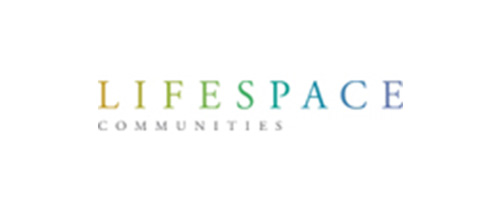Articles
The Journal on Active Aging brings articles of value to professionals dedicated to older-adult quality of life. Content sweeps across the active-aging landscape to focus on education and practice. Find articles of interest by searching the article archives in three ways: Enter a keyword in the articles search bar; click on search by topic; or type a keyword or phrase in the general search bar at the top of the page.
Topic- Gerontology

Brain-health literacy: A strategy to inspire brain-healthy lifestyles by Jeffrey Rossman, PhD, and Cornelia Lenherr, MD
As our population ages, the incidence of mild cognitive impairment (MCI) and dementia steadily increases. MCI, characterized by minor but measurable declines in cognitive abilities, increases a person's risk for Alzheimer's disease (AD) and other forms of dementia. Progressing to a dementia diagnosis is not inevitable, however. ... It is now generally acknowledged that the roots of neurodegeneration--that is, deterioration in the brain's nerve function and structure--begin at least 20-30 years before dementia symptoms are noticeable. By the time a diagnosis is made, reversal of the disease process in Alzheimer's and other dementias is currently considered unattainable. While no cure exists for these conditions, intervention can reduce symptoms. Further, for those with mild or subjective cognitive impairment (SCI), intervention may profoundly affect the progression of brain degeneration and symptoms of cognitive impairment. ... Recent research has explored the influence on brain health of modifying specific lifestyle factors and reducing cardiovascular disease risks. ... Through a brain-healthy literacy model, participants learn which lifestyle practices support brain health, why they exert a beneficial impact, and how to enjoyably and sustainably engage in those practices.
moreGerontology

Crusading against ageism in America's presidential elections by Beth Witrogen, BA, MJ
Dr. S. Jay Olshansky is on a mission: He wants to eviscerate ageism in the US presidential elections. A professor of Public Health at the University of Illinois at Chicago, Olshansky specializes in the upper limits to human longevity and biodemography, a scientific field he created with Dr. Bruce Carnes in 1992. He is unabashedly vocal about the way age has been "weaponized" in this election cycle. And, he urges, it must stop, "because science shows conclusively that chronological age is not relevant for either candidate...." As corresponding author of "Projected lifespan and healthspan of Joe Biden and Donald Trump before the 2020 election" (a special feature to the Journal on Active Aging available online), Olshansky directed a team of scientists and physicians to determine if Biden and Trump could survive the next four-year term. The team used independent biodemographic assessments of the two candidates' personal attributes--inherited and acquired risk factors for health and longevity--and public medical data that was evaluated independently by three physicians with expertise in human aging. The Journal on Active Aging spoke with Dr. Olshansky about his new research, why both candidates may be "super agers" and his message for those who would politicize aging.
moreGerontology

Healing practices: The evidence for Chinese medicine and healthy aging by Kelly Clady-Giramma, MS, LAc, Dipl OM
In China, long life and older adults are revered and aging embraced. Prior to the rising popularity of Western culture there over the past few decades, birthday celebrations were reserved for the very old. While everyone is young once, the thinking goes, it takes a lot of luck and talent to grow old-talent that deserves to be celebrated. Unsurprisingly, the Traditional Chinese Medicine (TCM) philosophy of longevity is not synonymous with the contemporary Western obsession with "anti-aging." Taoism, an ancient spiritual system that promotes living in harmony with nature and gave rise to TCM, encourages functionality and feeling young on the inside rather than simply looking young on the outside. TCM offers many tools and advice around longevity. It advocates balanced life in all its aspects. It promotes connection to nature and its cycles as well as respect for our circadian (daily) rhythms. TCM also encourages us to take personal responsibility for our health and be proactive. Many more people and physicians are turning to personalized integrative medicine today, focusing on healthy lifestyles and the best of various healing traditions. Integrative medicine combines treatments from conventional allopathic, or "Western", medicine with other evidence-based healing modalities from around the world, including TCM. For active-aging organizations, TCM's complementary approaches may open additional avenues to support clients in living longer, healthier lives.
moreGerontology

The impact of widowhood: How to support well-being for these men and women by Teresa Amaral Beshwate, MPH
My husband and I were out of state celebrating our 12th wedding anniversary and having lunch when his heart stopped beating. Despite my immediate response and the timely and appropriate efforts on the part of emergency services, that day I joined the ranks of the millions of people who are widowed. I was 39 years old. Losing a spouse is a common occurrence in general, and more common in older adults, for whom it can have serious and even life-threatening consequences. A key factor in healing is social support. For those who serve older adults, a tremendous opportunity exists to play a role in offering meaningful, long-term support to help a grieving person navigate life after loss.
moreGerontology

Strengthen the immune system naturally: More lifestyle strategies to counter chronic inflammation by Shirley Archer, JD, MA
If someone suggested that making very simple adjustments to one's daily routine would result in more energy, better sleep and potentially fewer aches and pains, with no adverse side effects and yet a host of beneficial side effects, would that persuade you or the people you work with to adopt them? In part one of my Journal on Active Aging (JAA) article on countering chronic inflammation for healthier aging, I described how lifestyle choices, environmental factors and genetics affect conditions related to inflammation. Since our genetics and many environmental factors--such as exposure to pollutants or environmental contaminants--are beyond our control, what we can influence are our lifestyle choices. The first article provided an overview of inflammation and focused on nutritional strategies to lower inflammation. Growing evidence is shining light on additional lifestyle factors and their relationship with the immune system. This second article offers a sampling of areas in which older adults can make simple lifestyle changes to support a healthy immune system, improve quality of life and enhance healthy aging.
moreGerontology

Targeting elder abuse by Alice Steinfeld, MEd, MA, LPC
With the age 60+ population predicted to nearly double worldwide by 2050, the potential for mistreatment of older adults will increase exponentially along with their need for care and support. That's because individuals may become a target of abuse and exploitation as they grow more dependent due to frayed community connections, inadequate social support for families, and ageism that sees older people as less than equal. Whether care comes from family members, professionals or self-care, laws are needed to protect older adults from possible abuse or neglect and ensure they are treated fairly. Often, elder abuse goes unreported because the individual depends greatly on the abuser, or a lack of clarity exists concerning what constitutes such abuse. In fact, elder abuse is a serious and growing challenge. Like other types of domestic violence, elder abuse is complicated. Contributors include a mixture of psychological, social and economic factors, along with the mental and physical conditions of both survivor and abuser. As professionals dedicated to quality of life for older adults, we all have a responsibility to participate in attempts to stop elder abuse, despite the inherent difficulties. So, how do we prevent or end something so complex?
more


































